As the nation begins a long weekend commemorating Independence Day, Americans who champion democracy, social justice, a clean environment, and racial and gender equity are not in a particularly celebratory mindset. A series of regressive rulings from the Supreme Court has halted and reversed progress, and more harmful decisions await on the polluted horizon. The court has agreed to take up a case from North Carolina called Moore v. Harper which could diminish already fragile checks and balances on extreme gerrymandering. This week the high court also severely restricted the Environmental Protection Agency’s ability to regulate pollution from power plants.
Especially alarming, of course, is the Dobbs v. Jackson Women’s Health Organization decision. Nearly 50 years after Roe v. Wade granted the constitutional right to an abortion, the fight for reproductive justice begins anew. This ruling will greatly exacerbate racial and geographic disparities in poverty, social justice, as well as health and educational outcomes. The Babcock Foundation’s mission is to help people and places move out of poverty and achieve greater social and economic justice. We support organizations and networks building power to advance racial equity. Overturning Roe runs aggressively contrary to our mission and values, and hampers the work of our partners across our 11-state region.
This decision most acutely harms Southern people of color, as many of the 22 states banning or severely restricting abortion are in the South, home to nearly half of America’s Black population and booming immigrant populations. Many states that already had the most severe restrictions on abortion also have the highest rates of maternal mortality. Banning abortion in these places will kill countless more women due to unsafe procedures and lack of access to critical care in life-threatening situations. What’s more, states criminalizing abortion are also likely to prosecute people for making the anguishing decision to end their pregnancies, which could result in felony charges and a permanent loss of voting rights.
In their statement, our partners at the Center on Budget and Policy Priorities point out, “By creating new legal and financial barriers to health care based on where people live and their resources to seek care elsewhere, the Court’s decision will further worsen health disparities. … Black women die at significantly higher rates than other groups and are twice as likely to experience serious health conditions resulting from labor or delivery. And births involving unintended pregnancies are more likely to result in adverse health outcomes for women, including death; this risk is higher for women of color than for white women.”
Our partners at State Voices remind us we are not powerless. They have curated a list of ways to translate our rage into action, including learning about the work happening in each state, a guide to making voting plans, ways to advocate for reproductive justice and organizations that could use donations to sustain this fight.
The toppling of Roe, however, did not happen in isolation. It is the culmination of a decades-long lurch toward authoritarianism and series of attacks on the pillars of democracy. We have seen this manifested in voter suppression efforts, gerrymandering and rising white supremacy, and the January sixth insurrection at the Capitol. The board and staff of the Foundation are wrestling with the weight of this disastrous decision and the trajectory it portends: a likely domino effect that would reverse hard-fought gains for the LGBTQ community, contraception, in-vitro fertilization and other rights.
The Babcock Foundation stands in solidarity with our partners and allies across the country fighting for basic human rights. We are also considering the best ways to show up for our grantee partners and the Southern communities they serve. While we are crestfallen about what’s happened and terrified for what’s to come, we commit to learning and doing alongside our partners and allies with respect, dignity and hope.
